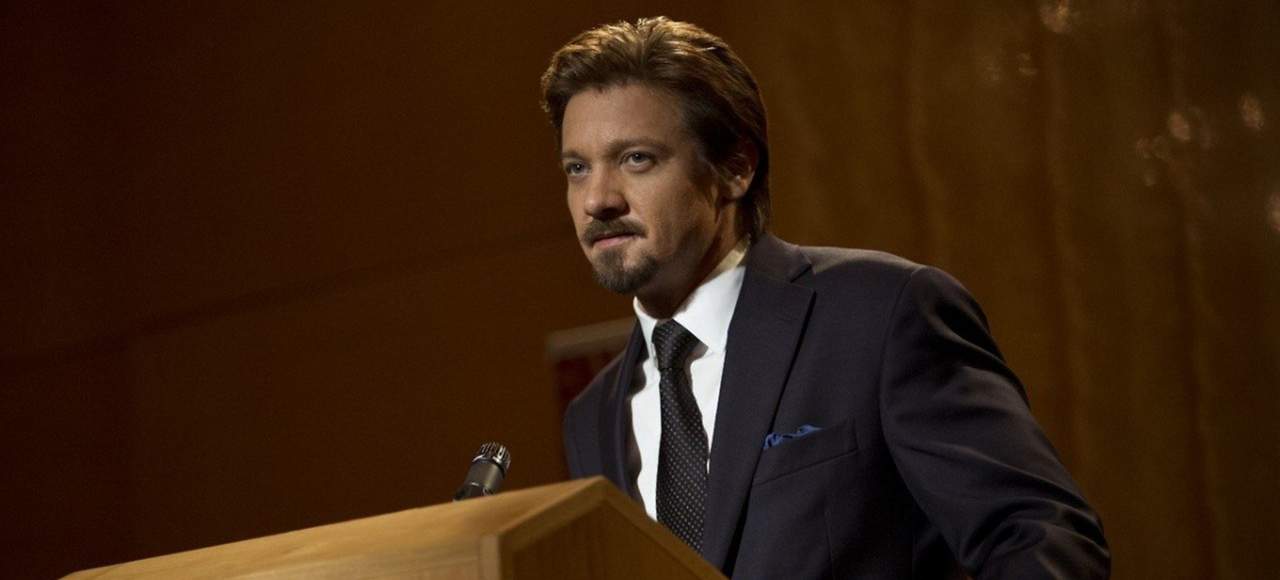Kill the Messenger
A compelling Jeremy Renner shows the other side of a career in journalism.
Overview
There's the truth, and then there's the tale that is told, a divide Kill the Messenger acknowledges. Driven by journalistic duty, Gary Webb (Jeremy Renner) unearths a scandal, though once his report is published, the press turns their attention to him over the facts. The surrounding film falls prey to the same trick, presenting an intriguing character study but skirting over the damage done.
Webb is a small-time player for a small-time paper, yet unafraid of turning big leads into big headlines. In California in 1996, he receives a tip about a deal involving the nation's intelligence agency and crack dealers in South Central Los Angeles. Covertly supporting the Nicaraguan Contras in their fight against their country's socialist rulers, the CIA is accused of assisting their US drug racket. Webb scours through sources from South America to Washington to substantiate his story, all ignored when governmental denial thrusts him into the spotlight.
With Mary Elizabeth Winstead and Oliver Platt as Webb's editors, Rosemarie DeWitt as his wife, and Michael Sheen, Andy Garcia and Ray Liotta as furtive figures, a competent cast fills in the details, in what remains a portrait of Webb's rise and fall. As compelling as he has ever been, Renner retains focus, matching his physicality to the transformative plight of a determined crusader victimised for doing the right thing. Often framed from afar or shown in hand-held close-ups, his recreation of Webb constantly looks over his shoulder with good reason. "We would never threaten your children," he is told in his only official face-to-face meeting with the CIA, and the feature's best display of tension.
Based on Nick Schou's 2006 book of the same name, alongside Webb's own 1998 manifesto Dark Alliance, Kill the Messenger harks back to a host of conspiracy thrillers and whistleblower dramas in its newsreel compiles offering background information and incendiary montages setting the emotional tone. Better known for helming episodes of Dexter and Homeland, director Michael Cuesta sticks to the standard in evoking an air of unease and flitting between episodic jaunts in a quest for justice, his feature fervent in sentiment but fleeting in impact.
All eyes stay on Renner's rising rage in his potent portrayal; however, the feature's message remains murky, swelling in telling of personal conflict but fading in spanning the extent of the scenario. That the most damning revelations are told as a post-script may indicate the difficulty of condensing the complicated true tale, but it also speaks to the same selectivity the film ostensibly rallies against. Kill the Messenger shouts the story of someone who refused to be silenced, yet favours an impassioned underdog account over a thorough consideration of its central media machinations.





